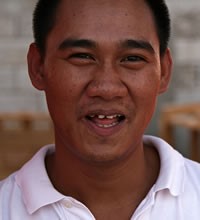Tagalog is the largest ethnic/language group residing in the Philippines, especially in the southern part of Luzon and nearby islands. The regions of Calabarzon and Mimaropa have the greatest concentrations.
They are one of the ancient dwellers of the Philippines. Tagalog culture developed in Taal, Batangas (the heartland of the Tagalog culture). The traditions of this people were passed orally. They developed a trading link with neighboring countries such as China, Japan, etc. Tagalogs have a writing system called baybayin. It uses diacritics to determine its pronunciation (similar to the Devanagari script of India).
During the Spanish colonization of the Philippines, the Tagalog homeland (especially Manila) became the center of colonial activity. The culture of these people dramatically changed from Asian to Hispanic culture (a combination of the two) during their rapid Christianization.
They eventually revolted against the Spanish colonizers. Along with other ethnic groups, Tagalogs fought against the invading Americans and later, the Japanese.
After gaining their independence, the Tagalog population grew rapidly. A poor economy and political corruption have led to poverty, causing many to migrate to 56 countries for work. One of their largest expat communities is in Saudi Arabia.
The first Tagalogs to come to Saudi Arabia did so in the early 1970s. They were usually doctors, engineers and other highly skilled professionals.
In recent decades Tagalogs came to Saudi Arabia as professionals, but others came with more modest backgrounds, such as auto mechanics or desalinization workers.
Tagalogs in Saudi Arabia earn far more than they would had they remained in the Philippines. The more fortunate work in the business, IT, or government sector and send plenty of money home to their families. These people have founded schools for their children during the years they work in Saudi Arabia.
Those with lesser skills and educational background sometimes face abuse. Women who work for private families run the risk of not getting paid being sexually abused.
Men often work in construction and jobs that include danger.
Their religion is Christianity, usually Roman Catholicism. They commonly incorporate pre-Christian beliefs into the church. Some believe in traditional healers/herdsmen called "Albularyo" who heal them from their illnesses. Many also believe in mythical creatures like aswang, multo and maligno.PRGRPHThere is also a strong Bible-believing element among Tagalogs.
The Filipino government tries to help its people obtain jobs in other parts of the world, and this has allowed billions of dollars to come back to the Philippines from overseas workers. However, this needs to be balanced with worker rights; the needs of f
Pray for the Lord to be their protector.
Pray for Tagalogs to focus their faith and devotion on Jesus Christ, the only savior.
Pray for them to become a major sending base to Muslims.
Pray that soon Tagalog disciples will be making more disciples.
Scripture Prayers for the Filipino, Tagalog in Saudi Arabia.
Anonymous
https://en.wikipedia.org/wiki/Overseas_Filipinos
https://en.wikipedia.org/wiki/Filipinos_in_Saudi_Arabia
| Profile Source: Joshua Project |











